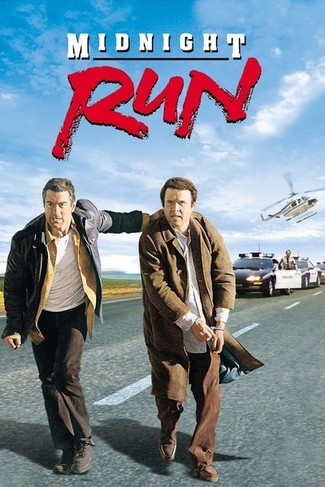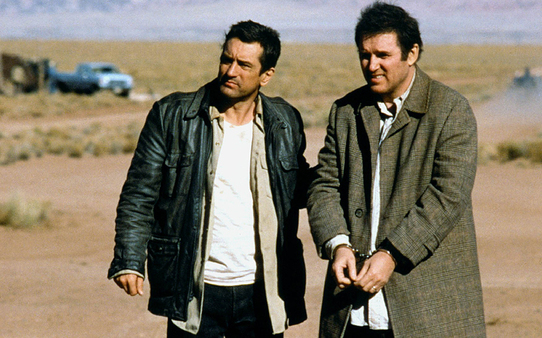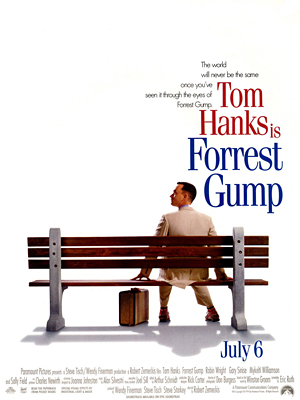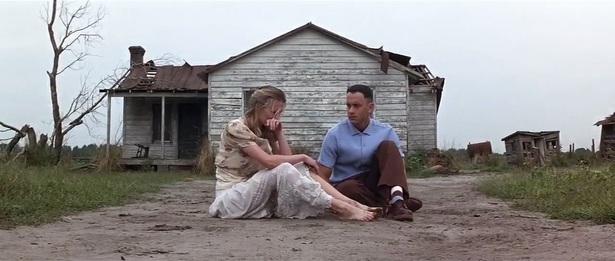|
“We have never not gotten the note that we need to raise the stakes. ‘Raise the stakes’ is what every executive must learn on the first day of executive school.” said Rhett Reese on the excellent Q&A with Jeff Goldsmith. He, along with his co-writing partner Paul Wernick, were discussing the tortuous six year journey it took to get ‘Deadpool’ to the screen. Unlike most Marvel superhero films where the stakes are raised until the entire planet is under threat and only one (in the case of the standalone adventures) or most (in the case of the Avengers and X-men films) superhero/es can save the day, ‘Deadpool’ is different. What’s at stake in ‘Deadpool’ is love. Just when it looks like Ryan Reynolds’ Wade and Morena Baccarin’s Vanessa have found their perfect match – he does allow her to take him up the ass on International Women’s Day – he is struck down by cancer. Then, when he thinks he is going to be cured, Francis fries his flesh and he can’t bear the thought of allowing Vanessa to see him that way. And finally, Francis kidnaps Vanessa to use her to get to Wade. The final climactic battle isn’t Deadpool trying to overcome impossible odds to save the world; it’s Deadpool trying to kill the man who made him look like a giant angry avocado. If, as an exec, you’re used to watching the Avengers fight an impossible swarm of aliens or the X-men battle a god, then what is at stake in 'Deadpool' must seem pretty paltry. But, as Reese, Wernick and Goldsmith discuss, after a $260 million opening weekend, it didn’t seem paltry to the audience. The problem with most stories isn’t what’s at stake - most writers seem to understand that the hero’s life, the life of someone he/she loves or his/her entire way of life is a good place to start – the problem is how to raise the stakes. If a story starts with a mother struggling to scrape together enough money to pay for her son’s operation, the stakes at the outset are pretty high, so how do you raise them? I have always thought that Martin Brest’s 1988 film ‘Midnight Run’ is a masterclass in how to raise the stakes. Robert De Niro plays a bounty hunter who dreams of getting out of a business in which he is always being shot and sworn at so he can open a café. He thinks the opportunity has arrived when he’s asked to find Charles Grodin’s Jonathan Mardukas. Mardukas stole $15 million from the Chicago mob, gave it to charity and then went into hiding after getting a bail bond company to pay his bail. The company, run by Eddie Moscone, played by the constantly excellent Joe Pantoliano, wants Mardukas found and brought back to LA or it’ll lose a quarter of a million dollars. De Niro’s Jack Walsh has five days to complete the task. As with any good story the setup is simple: a main character with a very clear idea what he wants and a time limit in which he must achieve it. And, as with any good story, things start to get complicated immediately: the FBI, who are also looking for Mardukas, descend on Jack and warn him to steer clear because he’s only going to get in their way. Yaphet Kotto’s Agent Alonzo Mosley threatens Jack in no uncertain terms. Dennis Farina’s mobster, Jimmy Serrano, also hears what Jack is up to and sends two goons to finish Mardukas off before he gets arrested and tells the police everything he knows about Serrano’s business. So even before Jack has found Mardukas the stakes have been raised: if he does what he’s set out to do he’ll either be arrested by the FBI or killed by the mob - his freedom and life are at stake. So how do you raise the stakes from that? Well he finds Mardukas and, understandably, Mardukas has no intention of going to prison because he knows Serrano’s people will kill him. From the outset Jack’s golden goose makes Jack’s life difficult: he fakes a fear of flying so they get kicked off the plane which was going to get Jack back to LA from New York in plenty of time. So, pursued by the FBI, the mob and an inept bounty hunter called Marvin, they have to make their way across the US by any means possible (apart from flying – until Mardukas tries to steal a plane!) They run out of money, food and transport. In every single scene Jack’s plan to get Mardukas to LA by midnight on a certain day so he can leave bounty hunting and open his cafe is tested to the extreme – just when the situation looks impossible, it becomes more impossible as first the FBI, then the mob, then Marvin try to snatch Mardukas away from Jack. But the genius of ‘Midnight Run’ is that it does not only rely on external stakes – having to outwit the FBI or dodge bullets fired at them by the mob – there are emotional stakes. Mardukas keeps telling Jack that Serrano’s men will eventually get to him, and, as hard as he might try, Jack can’t ignore the fact that he is leading a good man to his death. What's at stake is Jack's desire to always be on the side of good. Also Jack, who hasn’t seen his wife and daughter for six years since he was run out of Chicago by a corrupt police force who were all taking bribes from a drug smuggler, is forced to go to their house and ask for money. As soon as his ex-wife opens the door you can see he still loves her but she’s now married to one of the corrupt cops. Then his daughter offers him her babysitting money and it breaks his heart. And this leads to the ultimate stake for a man with a strong moral code like Jack, a man who wouldn’t take a bride, because Mardukas realises that the drug smuggler who ran Jack out of Chicago and Jimmy Serrano are one and the same man: if Jack does what he has set out to do he will, in effect, be helping the criminal who destroyed his life. An impossible situation just became more impossible because what is at stake now is everything Jack sacrificed, a wife he still loves and a daughter he misses, and everything he stood for when he wouldn't take a bribe. The fourth act of ‘Midnight Run’ ends exactly where a fourth act should: Marvin manages to snatch Mardukas away from Jack and Jack is arrested by the FBI. There is no way in hell, we think, is he going to come out on top of this situation. But then, as the story builds to its climax - and this is the only time it should happen - through the main character’s ingenuity, suddenly the impossible seems possible. Both ‘Deadpool’ and ‘Midnight Run’ raise the stakes in the same way: at the beginning of the stories the main characters are given what they want – in ‘Deadpool’ Wade finds a woman who is as deviant as he is and in ‘Midnight Run’ Jack sees a way to leave bounty hunting forever – and then what they want is taken away from them and they have to fight to get it back with each scene raising the stakes in some way - physically, emotionally, morally. But through the fight they discover something else: what they need.
1 Comment
Me: ‘What is Forrest Gump’s motivation?’ Robert McKee: ‘To please his mother.’ Me: ‘?’ Those of you who have been to one of Robert McKee’s ‘Story’ seminars will know that the windows for Q&As are very limited: the beginning of the day, if you get there early enough, or at the end of a long day – no one is allowed to ask questions during McKee’s seminar. But in one of those brief windows I took the opportunity to ask a question that had puzzled me ever since I’d first seen Robert Zemeckis’ 1994 film in which Tom Hanks plays the central character and I thought if anyone would know it’d be McKee. But his answer didn’t seem to hit the nail on the head entirely. Of course, Forrest Gump’s mother, played by Sally Field, is a huge presence in his life, she is after all his mother, and she does, as all mothers do, everything she can to help him. But she has no specific plan for Forrest: she doesn’t hold up any particular people as role models he should aspire to (his dad went on vacation and just never came back); she doesn’t tell him that if he behaviours in a good and decent way he’ll get there in the end because she knows, as Forrest himself says, he’s not the smartest man; and, apart from sleeping with the school principal, she does nothing to manipulate events so Forrest will get ahead. She tells him early in the film that he is no different from anyone else – which isn’t a resounding call to action. She has absolutely nothing to do with Forrest’s talents, his ability to run fast and play ping-pong, talents that, contrary to every storytelling convention, he takes to like a duck to water with no training or struggle. When Forrest asks her what his destiny is, she tells him that he has to figure that out for himself. Then she dies. But perhaps the most important aspect of his life upon which she has no impact at all, because as far as we know he never tells her, is his love for Jenny. I always thought that if any one person was motivating Forrest Gump it was Robin Wright's Jenny. Jenny is the constant throughout Forrest’s life: from the moment they meet on the school bus when they are children, they are like peas and carrots. She sneaks out of her grandmother’s trailer to be with him and he sneaks into the single sex college to be with her. He writes to her every day he is in Vietnam and meets her again at an anti-war demonstration when he returns. He thinks of her as he lies under the stars, alone on his shrimping boat, and when he moves into his mother’s house. And it is there, unexpectedly, that she comes to him. They spend a night together and then she is gone again. When they do finally get together, it is only briefly, because she is dying. But not once, throughout all their meetings, which are defined by Forrest’s desire to protect Jenny from the world, does he make a concerted effort to find her or to follow her when she decides to go: it is just that through the tumult of world events their lives collide - but she always leaves and Forrest accepts it meekly. So even Jenny, the love of his life, doesn’t motivate him to do anything. The only person who motivates Forrest to do something is Mykelti Williamson's Bubba. Forrest makes a promise to Bubba that when Bubba has a shrimping boat he will be his first mate. But Bubba dies in Vietnam so Forrest buys a boat, names it Jenny and acts as captain. Only he completely fails to catch any shrimp – until a literal deus ex machina, the bane of any storytelling expert, arrives in the shape of a hurricane and conveniently decimates the shrimping industry. This lack of a desire to achieve anything means that Forrest Gump is essentially the same character at the beginning of the film, when he is nine years old having his leg braces fitted, as he is at the end of the film, when he sits down to await his son’s return from school. Of course, main characters who don’t change over the course of a story have always existed, most commonly in the Western. Alan Ladd’s Shane, Clint Eastwood’s the man with no name and Yul Brenner’s Chris in ‘The Magnificent Seven’ are all exactly the same at the end of the film as they are at the beginning. But they are all men who are motivated to do something - usually to bring order where there is disorder - and because they are motivated to act when no one else can they change the lives of everyone around them. Forrest Gump changes people’s lives - only not by design but by complete accident. This is most perfectly illustrated in the sequence where he runs across the USA. After Jenny has left him again, and in his own words ‘For no particular reason at all’, he starts to run. He runs to the end of the road, then he decides to run to the end of town, then across the state of Alabama and then all the way to the ocean. And because he’s managed to run that far, he turns around and runs all the way to the other ocean. And he keeps doing this for three-and-a-half years. Along the way he gives one man the idea for the ‘shit happens’ bumper sticker and another the idea for the yellow smiley face on a t-shirt. He doesn’t plan to and it only happens because he runs through some dog shit and then gets splashed in the face with mud. Ardent fans of the film will know that he also inadvertently teaches Elvis to dance and casually gives John Lennon the lyrics for ‘Imagine’. But he has no goal which he accomplishes before leaving; no enemy that he defeats before riding into the sunset. So maybe the answer to the question I asked Robert McKee is that Forrest Gump is a unique character who has no motivation, a character who is sustained by love, specifically his enduring love for Jenny – and over the course of the two-and-a-half hour running time of the film, across the span of US history, and contrary to every storytelling convention - that is enough… |
ScriptPlayerWriter, reader, pontificator. Archives
May 2023
Categories |






 RSS Feed
RSS Feed